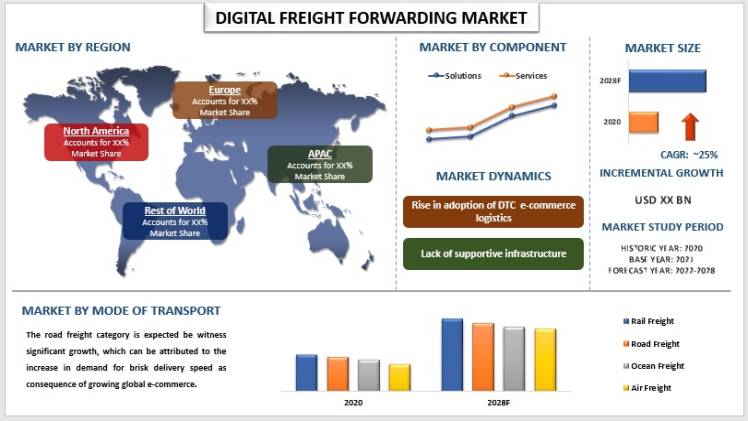The Rise of Digital Platforms in Freight Forwarding

The freight industry, historically characterized by its reliance on manual operations and traditional business models, has in recent years experienced a transformative shift toward digitalization. With the burgeoning growth of technology across various industries, the freight forwarding sector couldn’t remain untouched. Today, we observe an accelerated movement towards digital platforms, which have not only revolutionized the industry’s operations but also significantly enhanced customer experiences.
To contextualize the profound impact of digitalization on the freight industry, consider these striking statistics: A 2020 report revealed that over 70% of freight forwarders identified digitalization as a top strategic initiative. Furthermore, companies that have incorporated digital platforms into their operations witnessed a 20% reduction in operational costs and a 30% increase in operational efficiency. It doesn’t stop there. According to the same report, customer inquiries processed via digital platforms were resolved nearly 50% faster than those through traditional methods. Such figures underscore the undeniable momentum and value that digitalization offers to forwarders and their clients. As the industry grapples with rising demands, digital platforms serve as an indispensable tool for meeting these needs efficiently.
An in-depth look at the features of a typical freight forwarding platform:
- Real-time tracking:
Gone are the days when customers had to be content with vague timelines for their shipments. Real-time tracking has brought about transparency and visibility like never before. It allows shippers and receivers to know exactly where their goods are, what routes they are taking, and their estimated times of arrival. This not only brings peace of mind but also allows for better decision-making in supply chains.
- Automated booking:
Automation has infiltrated numerous sectors and freight forwarding is no exception. Automated booking systems simplify the process of booking shipments, reducing human errors and speeding up the entire operation. Clients can now book shipments at their convenience, select routes, and get instant price quotes without waiting for a human representative to get back to them.
- Cloud storage:
The power of the cloud has bestowed immense benefits upon the freight forwarding industry. With cloud storage, firms can store vast amounts of data securely without the need for physical infrastructure. It also facilitates easier sharing and access to this data across different departments or even globally, making collaborations smoother.
- Digital documentation:
Digital documentation has arguably been one of the most revolutionary features. Traditional freight forwarding involved heaps of paperwork, leading to inefficiencies, misplacements, and delays. Digital documentation eliminates these issues, providing organized, easily accessible, and secure means of handling essential documents.
Discussing the competitive advantage gained through freight forwarder software
In an industry where time, efficiency, and reliability are crucial, digital platforms offer a significant edge. By adopting these platforms, freight forwarders can:
- Improve customer experience through transparency and efficiency.
- Reduce operational costs by eliminating manual processes and leveraging automation.
- Increase scalability since digital platforms can accommodate growing numbers of transactions without proportionate increases in infrastructure or manpower.
- Enhance decision-making abilities through data analytics and real-time information.
- Foster innovation by integrating with other technological solutions, like AI or blockchain.
Risks and challenges: Mitigation through solid digital strategies
While digital platforms herald a new era of efficiency and growth for freight forwarders, they also come with their unique set of challenges:
Cybersecurity: The digital age has seen an increase in cyber threats. Freight forwarding platforms are no exception. Protecting sensitive data, especially in a cloud environment, is paramount.
Integration with existing systems: Many firms have legacy systems in place. Integrating these with new platforms can be challenging and costly.
Resistance to change: Employees accustomed to traditional methods might resist moving to a digital platform. Training and change management are essential to address this issue.
Regulatory concerns: Digital documentation and operations may face regulatory scrutiny in some jurisdictions.
Mitigating these challenges requires a robust digital strategy. Freight forwarders must prioritize cybersecurity, invest in training, and establish clear protocols for digital operations. Collaborating with technology experts and staying updated on regulatory developments can also help navigate these challenges.
The undeniable dominance of digital platforms in the industry’s future
The freight forwarding industry stands at a pivotal juncture. As technology continues to evolve, the integration of digital platforms into freight operations is not merely a competitive advantage but a necessity. While challenges exist, their mitigation pales in comparison to the immense potential these platforms offer.
As the industry marches into the future, one thing is clear: digital platforms will dominate the landscape, setting the benchmark for operations, customer experience, and growth. Forwarders who embrace this digital shift will be the torchbearers, while those who resist will find themselves struggling to keep pace.
Logitude World provides freight forwarders with advanced freight forwarding software to manage all operations on one digital platform and deliver superior freight forwarding services.




